The beauty of art lies in the spaces it provides you with for thoughts and imagination. Paintings and music are widely accepted as more abstract forms of art but cinema, however, despite being an art form has often succumbed to the viewers’ demands for making sense and containing solid answers to take home with. David Lynch once said, “I don’t know why people expect art to make sense. They accept the fact that life doesn’t make sense.” I think this gives us an insight into what real cinematic auteurship demands from its viewers. Personally I’ve often found myself fascinated towards films that raise questions and ideas rather than the ones that try to feed you with simple answers. With that said, let’s look at the list of 15 best movies with multiple interpretations or simply put, the best ambiguous movies.
15. The Master (2012)
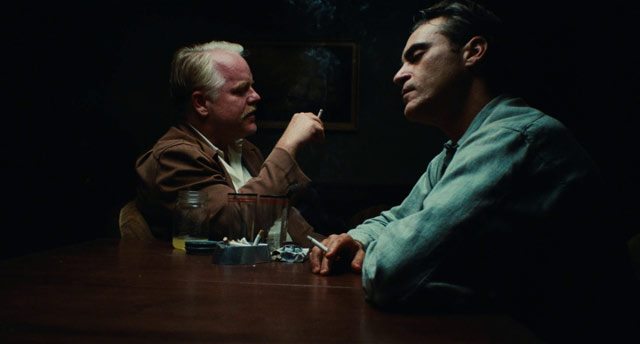
The ambition of it…The sheer ambition of it. Paul Thomas Anderson’s ‘The Master’ is a film about so many things. But Anderson disguises the underlying themes of the film with a plot that follows two men who are at two different spectrum of their existence but are bonded by their need to feel alive and worthy in their lives. Lancaster Dodd is just as emotionally torn as Freddie Quell and uses religion to merely mask his emotional bruises. Freddie finds comfort and solace in the same and more so by being the disciple of his master. The desire to have a father figure, a master is what eventually leads Freddie to the path of self-discovery. It’s almost like a romantic film disguised as a philosophical satire on a cult religion. ‘The Master’ truly remains one of the greatest creations of American cinema.
14. Blow-Up (1966)
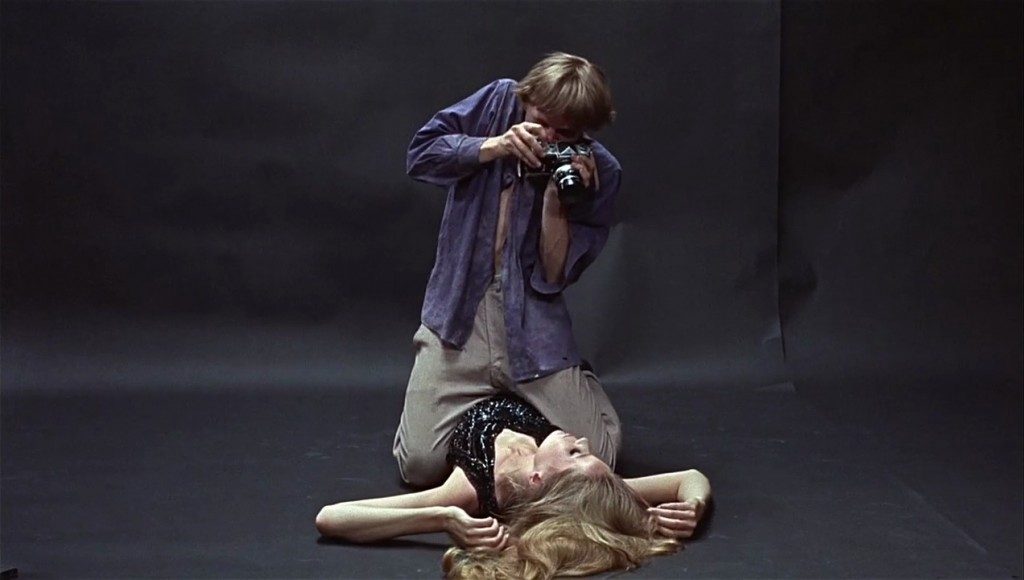
Italian auteur Michelangelo Antonioni’s seductively intriguing mystery drama follows a Londoner who seems to be living the life he always dreamt of, getting laid and high while doing what he really loves. One of the major issues, I think, that hampers Antonioni’s works from being flat-out masterpieces is that he often tends to meander with his narrative and while that manages to reflect the windy emotional state of his characters, it doesn’t always work in the context of the story and often comes off as a bit of a frustrating experience. However, ‘Blow Up’ is devoid of those issues and is probably his most controlled and authoritative piece of work. What ‘Blow Up’ is all about will always remain ambiguous but it clearly touches on the themes of an artist’s delusional perceptions of the world around him.
13. The White Ribbon (2009)
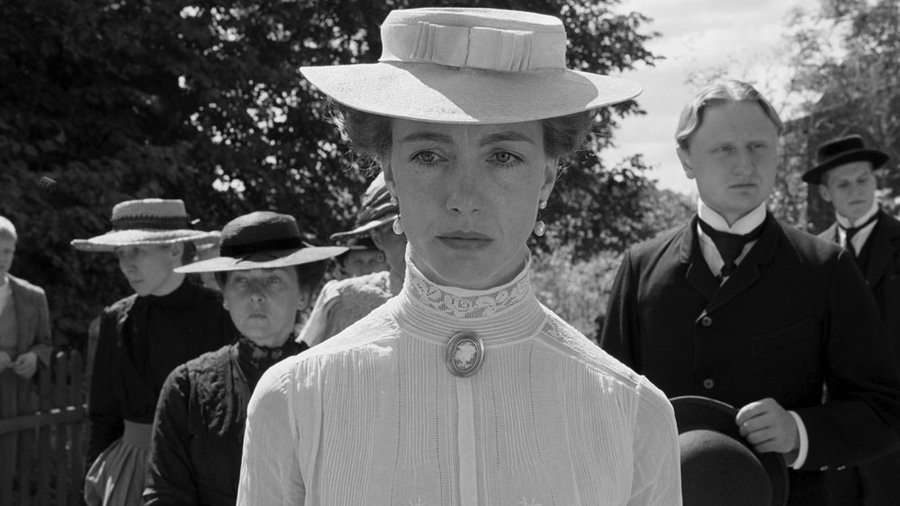
Very few filmmakers realise the true meaning of the word ambiguity. Austrian auteur Michael Haneke is one of them. Asking for a solid, well cut answers to his films is a sin. ‘The White Ribbon’ might just be his most accomplished work in terms of the vision and the thematic ambitions of the film. The film explores the lives of a village where a series of bizarre events have been taking place but nobody seems to know what’s causing them. A doctor falls off his horse. A handicapped boy is inhumanely tortured. A pastor who brutally beats his kids for indulging in masturbation and committing misdemeanours. These are kids who would later turn into fully matured adults by the time World War II begins. What does this say? Were the kids responsible for the entire series of happenings? We are not sure. Does this mean that these kids would go on to join the Nazi forces? Probably but that’s not the point. The point is, in Haneke’s own words, “about the roots of evil. Whether its religious or political terrorism, it’s the same thing.”
12. Cache (2005)
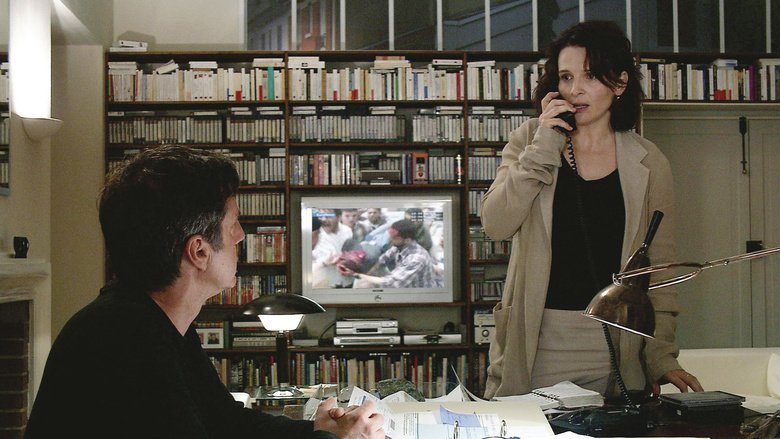
A lot of people were infuriated by that obscure ending of Michael Haneke’s ‘Cache’. Of course, that’s understandable as Haneke has never the kind of filmmaker who’d provide his viewers with concrete answers. He often demanded a higher level of participation from the viewers which might be very challenging if you don’t really know what is it that he’s trying to say. Ever single shot in Haneke’s films are well thought and this is perhaps most evident in ‘Cache’. He uses the family to represent the European bourgeouis society and the plot as an allegory about France’s repressed memories of the 1961 Seine River Massacre.
The famous closing shot of the film shows the sons of Majid and Georges speaking to each other. What does this tell us? Perhaps they came up with the ideas and were sending the videotapes themselves. But that would seem too obvious. The closing shot looks the exact same way the opening shot was filmed and so maybe even that was just a clip being watched by someone else. But we never know…
11. Spring, Summer, Fall, Winter…and Spring (2003)
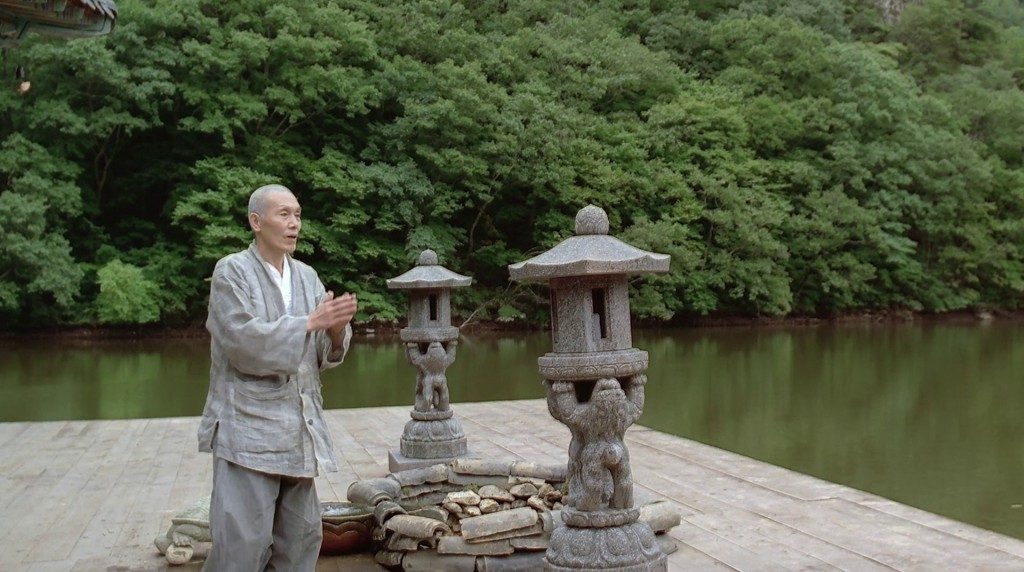
‘Spring, Summer, Fall, Winter…and Spring’ is simply the most intellectually meditative cinematic experience I’ve ever had. Kim ki-Duk is a true cinematic visionary with a profoundly philosophical auteuristic vision that rewards you with such deeply contemplative experiences about life, love, desires and existence. ‘Spring. Summer..’ does not speak about what it wants to say or is trying to convey but instead it asks you to emotionally invest and engage in its spiritual journey that captures the repetitious cycle of human life. The film features minimal use of dialogues and focuses more on the visual aspects that manage to get across the philosophical themes of the film.
10. 3 Women (1977)
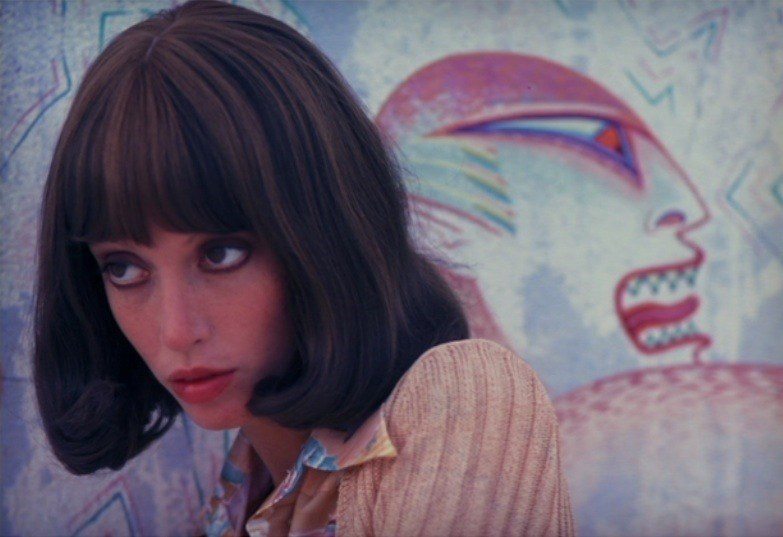
Robert Altman’s surreal avant-garde masterpiece was inspired by a dream he had in which he was directing a film starring Shelley Duvall and Sissy Spacek, set in a desert like setting, that centred around the theme of identity. What Altman brilliantly manages to do here is bring in that puzzling, ambiguous nature of dreams on to the screen without feeling the urge to make sense using a more solid storyline. ‘3 Women’ is clearly inspired by Ingmar Bergman’s ‘Persona’ but Altman infuses the film with his trademark eccentricity that turns the film into an experience like no other. Apparently the film is about identity theft but perhaps it’s much more than that. I think it captures the bizarrely complex fantasy world that is ingrained in the female psyche.
9. Certified Copy (2010)
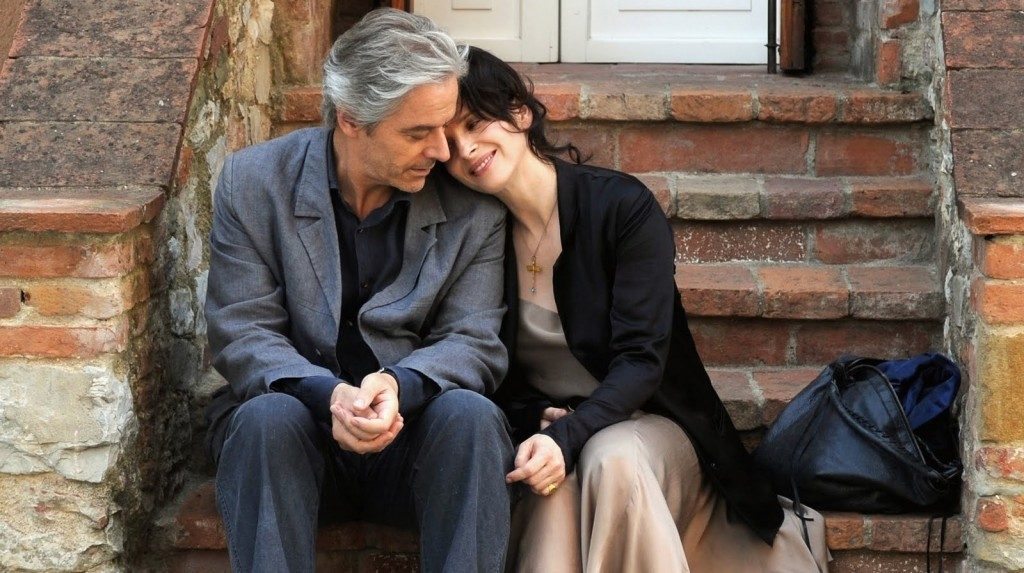
Abbas Kiarostami’s experimental drama raises questions on our perceptions of reality. Is reality as objective as we believe it to be? We often make up our own images of the people we love but what’s ultimately tragic and befuddling here lies in the realisation that we live our lives in illusions by making up things to satisfy our existence. The couple that Kiarostami presents us with aren’t traditional film characters. They could be just about any couple in this world. And this brings in a sense of objectivity to the emotional spectrum of the film. What Kiarostami does here is an objective examination of the inherent complexities encompassing man-woman relationships which makes it so profoundly universal. Certified Copy is, in my opinion, a philosophical anatomy of marriage and much more…
8. Uncle Boonmee Who Can Recall His Past Lives (2010)
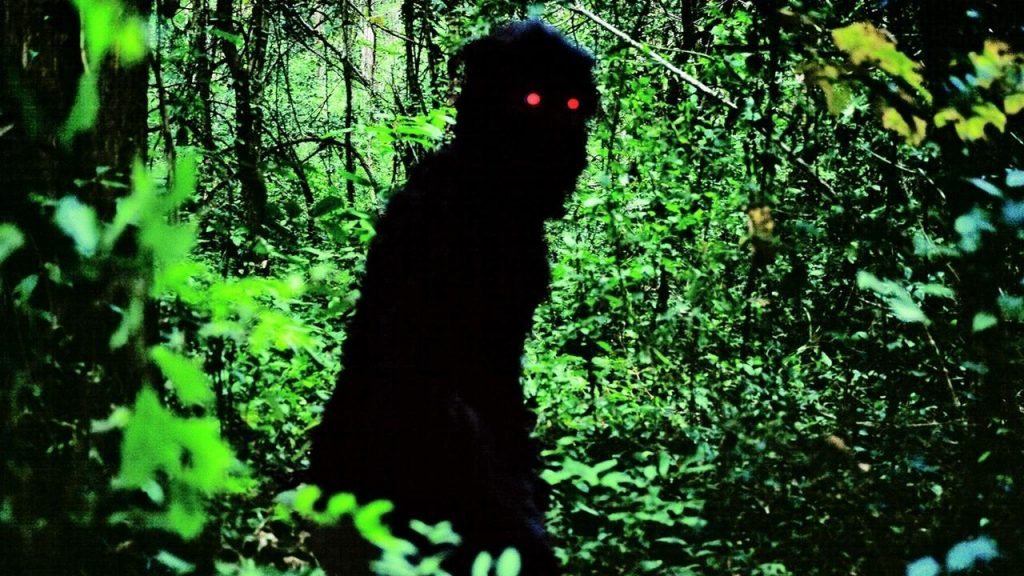
I’m still not sure how to feel about this film. Thai filmmaker Apichatpong Weerasethakul’s masterpiece is so simple yet so complex. Rarely does a film manage to leave you in such an emotional mess that you may find yourselves struggling really hard to gather your thoughts. ‘Uncle Boonmee Who Can Recall His Past Lives’ follows the simple story of a man suffering from kidney disease, spending his final few days with the ghost of his wife and his estranged son who has returned in the form of a weird creature. What the film is all about is up for debate and you could come up with numerous interpretations and possible explanations behind the seductive weirdness of its plot.
7. Inland Empire (2006)
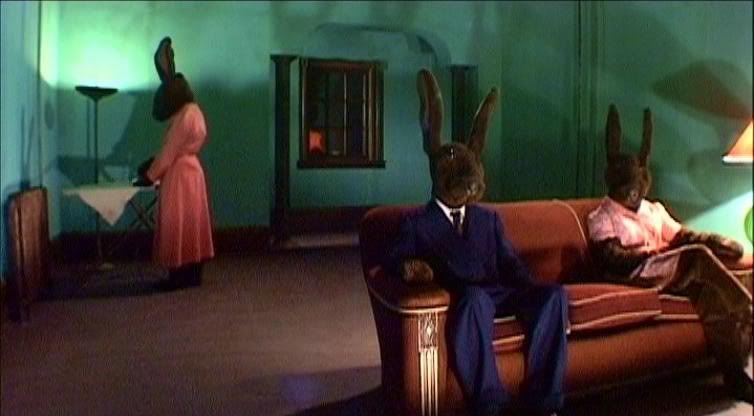
‘Inland Empire’ wouldn’t be anywhere near my favourite Lynch but it’s just as surreal and enigmatic as his other works. No single theory could explain the bizarrely cryptic nature of the film and we could only try and come up with remotely possible explanations that might help us get a peek into Lynch’s subconscious. The story is probably the least important aspect here and what Lynch does here is reflect upon the deepest fears embedded in the human psych. Perhaps it would take me a few more viewings to come up with a more concrete explanation of the film. Nevertheless, it’s Lynch at his most exciting and definitely deserves a watch for its intriguing boldness.
6. Goodbye to Language (2014)

The thing about Jean-Luc Godard’s films is that you may hate his films but there’s something that’s weirdly fascinating about all of his films that you just can’t get out of your head despite how annoyingly pretentious they may seem. It took me some time to realise the cinematic genius of this man. I wouldn’t be exaggerating when I say that I absolutely loathed ‘Goodbye to Language’ on my first viewing. The film may seem nothing more than a bunch of scenes put together with fragments of ideas and philosophies that are truly Godard-ian in nature. But the film begins to make more sense when you get an idea of what Godard is trying to say her about the importance of human communication. According to him, ‘Adieu au Language’ could mean two very different things. Although “Adieu” means “farewell” in French, it can also mean “hello” in the French-speaking Switzerland where he lives. This probably indicates the fact that Godard here bids farewell to any kind of cinematic language or maybe the film welcomes a new language that fiercely defies conventional cinematic grammars.
5. Persona (1966)
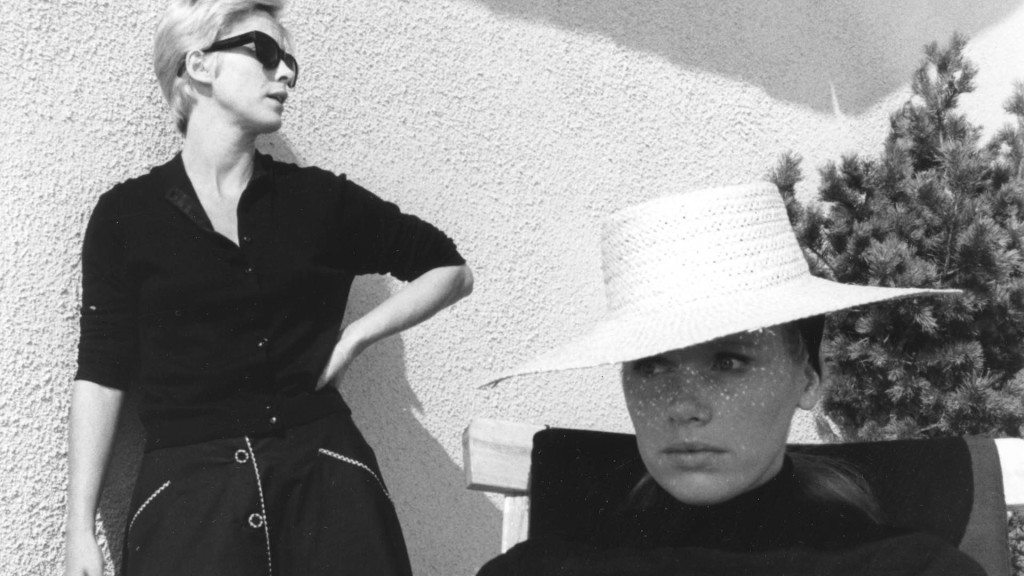
Ingmar Bergman’s masterpiece is a seductively enigmatic tale of identity, duality, insanity and the complexities of the female psyche. Alma is a nurse who is given the responsibility of taking care of a mute stage actress named Elisabeth. The two move to a cottage where they begin to develop an eerily intimate bond after Alma shares with Elisabeth the dark secrets of her personal life. They grow so close to each other that their personalities merge and there’s a whole lot of switching that occurs in the film as the characters enact each others roles. We could conclude that the entire film was a play starring Elisabeth. But the ambiguity lies in it. Are these two women the same? They could perhaps be the same person with two starkly different sides or maybe both their personalities were just illusions and they never really existed.
4. The Double Life of Veronique (1991)
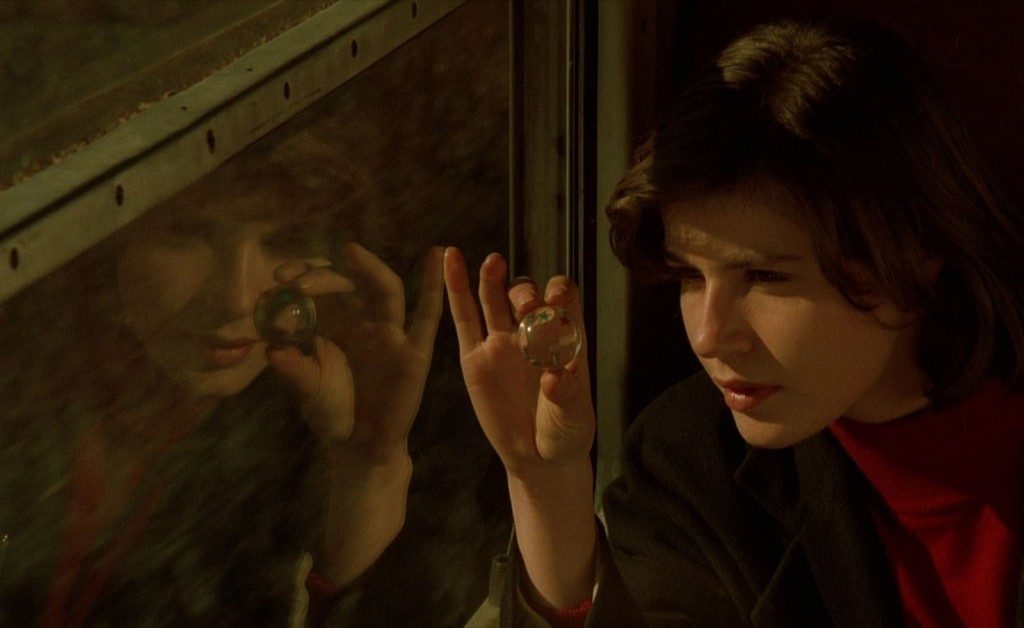
Krzyzstof Kieslowski’s world of women and sensuality wasn’t terrifying or nightmarish. It was so tenderly melancholic. The dream like quality of the film made for a truly hypnotic experience that was so overwhelming with emotions too profound and delicate to put into words. To me, this is a film about human connection and intimacy. We often feel things that are too hard and painful to be fully expressed and it’s this inexplicable feeling of sadness that Kieslowski paints the film with using female sensuality and the inherent melancholy of the female psyche. It’s a film that demands you to leave behind any kind of logic and the need to make sense out of a work of art and instead asks you to give yourself over to the film emotionally and the reward could be one of the most profound cinematic experiences you’ll ever have.
3. Mulholland Drive (2001)
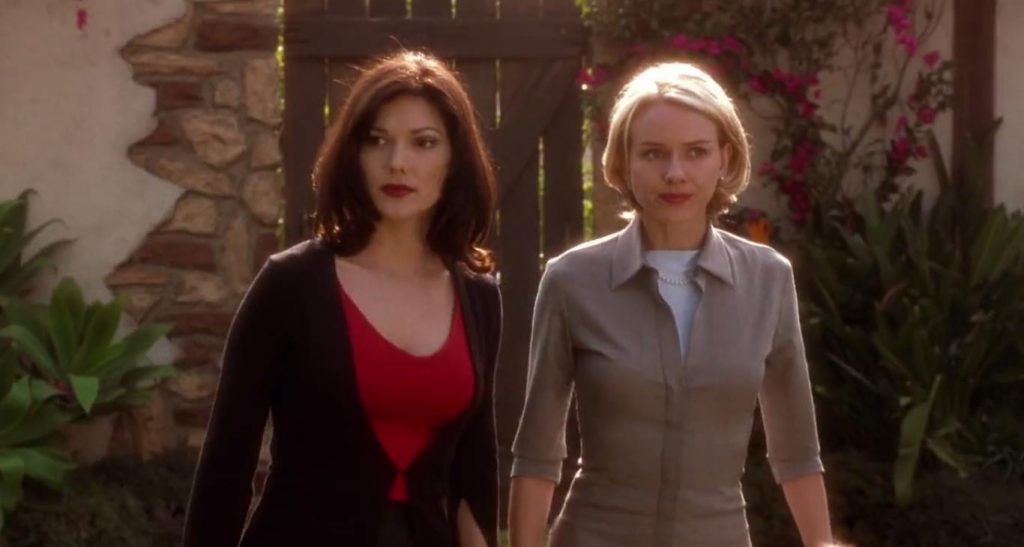
When people often rant about how frustratingly puzzling and complicated ‘Mulholland Drive’ is to be understood, I just sit and wonder what Mr. Lynch must be thinking of it. Did he make this film keeping in mind that people would understand every single bit of it? Clearly, no. Lynch has often stated that a film can be as abstract as music or any other art form which for many reasons isn’t the general perception. A film could be an idea or just a feeling. And ‘Mulholland Drive’ is exactly that. It’s a feeling that is indescribable. The film is human subconscious in painting. If you look beyond the plot, you can see that ‘Mulholland Drive’ is about everything that makes us human; dreams, love, obsession, desires, fears and so on.
2. The Mirror (1975)
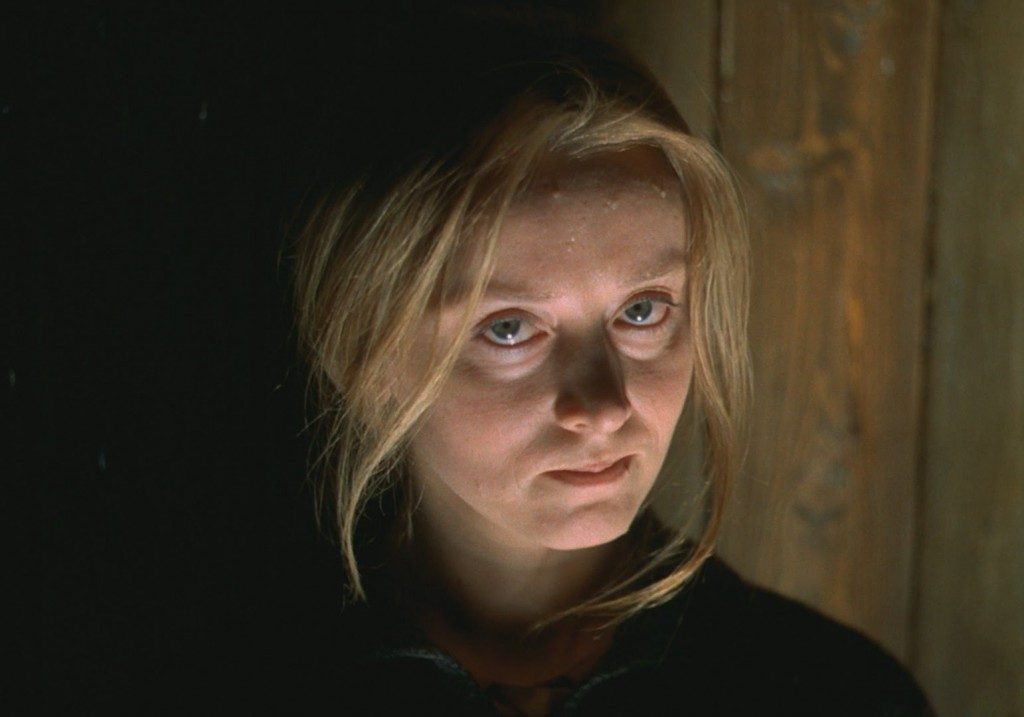
There are few films I could never really write about. And neither do I feel the urge to write about them. The kind of abstractness our feelings create is essential to building a much more intimate connection with the film and so trying to make sense out of that magical abstractness using words seems to me as a silly exercise. Andrei Tarkovsky’s ‘The Mirror’ is that kind of a film. I never thought cinema had the power to transport you into the world seen by its filmmaker. ‘The Mirror’ took me to a world that was seemingly alien to me but somewhere I felt I knew these people. It could be your childhood that’s being shown, that woman could be your mother. It’s such a deeply personal, intimate work of art that transcends cultural and ethnic barriers and touches the one thing that strikes a resounding chord in all of us; humanity.
1. 2001: A Space Odyssey (1968)
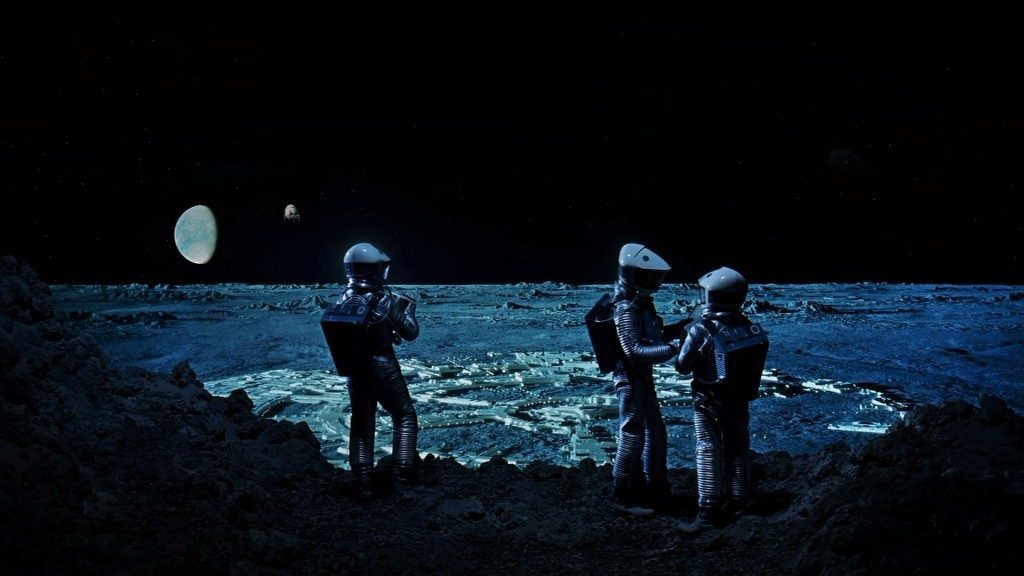
‘2001: A Space Odyssey’ is the mother of all ambiguous films. It’s been over 4 decades now but the film continues to inspire and fascinate theorists, scholars, critics and movie buffs with its startling vision and thematic ambiguities. ‘2001’ is a film about quite literally everything. Everything that makes the universe, our existence and the unfathomable complexities of the universe. Most people have complained about the film lacking a solid story but to be honest, story is the least important element in a film. What’s most important is to have a vision; a philosophy or perhaps just an idea that you want to express and how you use the visuality of cinema to get that across your viewers. That, to me, is true cinema. And ‘2001: A Space Odyssey’ is a staggering work of art that embodies every aspect of the word cinema.

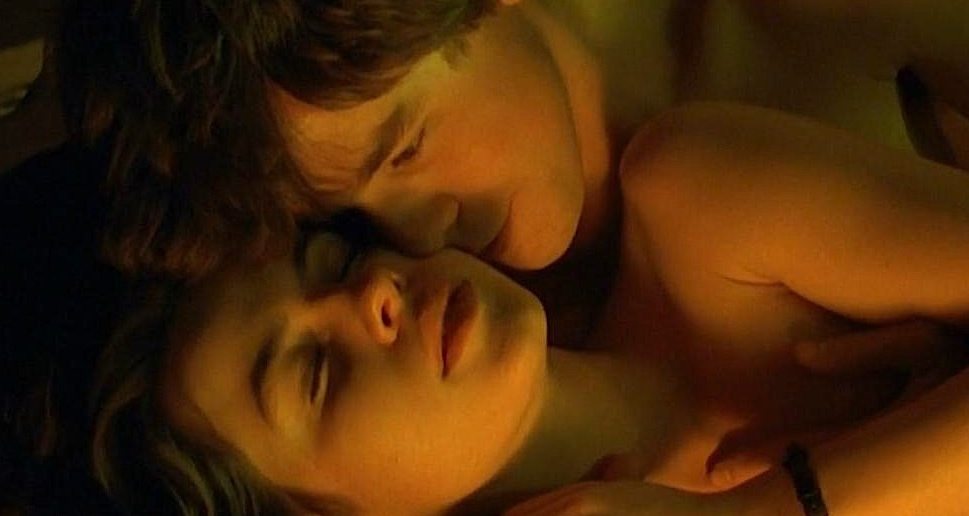
You must be logged in to post a comment.